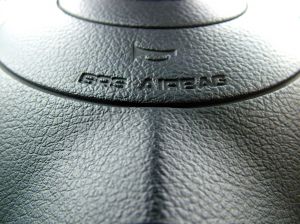- Free Initial Consultation: (954) 761-3641 Tap Here To Call Us
Miami Judge Forges Ahead With Air Bag Cases After Takata Pleads Guilty

Japanese auto parts maker Takata recently pleaded guilty to fraud for concealing defects in millions of airbags sold to consumers throughout the U.S. and across the globe. The Justice Department announced the company will pay $1 billion for this deception, which affected 19 automakers and some 100 million vehicles worldwide.
Although that sounds like a lot, it’s actually peanuts, given the scope of the fraud in comparison to what other companies have paid for similar offenses. For example, Volkswagon was required to pay $21 billion over an emissions-cheating scandal. Although penalties will include $125 million to consumers, the judge could have imposed as much as $1.5 billion. However, doing so likely would have put the auto maker out of business.
Still, that might yet be on the horizon. In Miami, a U.S. District Judge said the settlement means the pending multi-district litigation can move forward, most likely via settlements before trial.more
The personal injury lawsuits allege injuries, wrongful death and property damage against Takata and numerous vehicle manufacturers who installed Takata airbags. U.S. District Judge Federico Moreno said he is eager to get the cases resolved because litigation on this scale has a tendency to drag on. This admission from Takata may speed the process, and he’s pressing both sides to begin mediation. It’s unlikely all will be resolved in that manner, so he’s hoping the bellwether cases will go to trial no later than early 2018.
The reason the settlement – and Takata’s admission of wrongdoing to the DOJ – matter in the pending civil cases is that the automaker can no longer vehemently deny some of the things it previously was.
However, the party most excited about this admission are the automakers. They believe it tends to show the auto manufacturers were victims in this as well. Because they were also deceived, they contend, they should not face liability. Manufacturers were unaware of the company’s fraud and didn’t know enough about the issue to mislead consumers, they insist.
Attorneys for lead plaintiffs call this argument “ludicrous,” pointing out that discovery so far has shown automakers were aware of the dangers of the chemical compound in the airbags, but continued to purchase them anyway because they were inexpensive compared to the alternative models. For example, by the time Honda initiated its first national recall three years ago, the company had already received 77 reports of ruptured airbags, in some cases resulting in death and serious personal injury.
These devices, you may recall, contain a chemical compound that was later found to be unstable, particularly when exposed to extended periods of heat (that’s why so many of these cases happened in the South). When the compounds ruptured, they expelled shrapnel at explosive rates directly into the faces and necks of drivers and passengers – sometimes with deadly outcomes.
Another effect the settlement could have on the multi-district litigation is that some plaintiffs could opt instead to accept payment from that $125 million DOJ settlement in exchange for dropping their lawsuits.
Meanwhile, automakers who purchased the airbags were awarded $850 million in the settlement. It’s been suggested that they use that money to settle existing claims of economic loss from some 40 million consumers whose vehicles lost value because of defective airbags.
Call Fort Lauderdale Injury Attorney Richard Ansara at (954) 761-4011. Serving Broward, Miami-Dade and Palm Beach counties.
Additional Resources:
Miami Judge Aims to Advance Air Bag Litigation in Wake of Takata’s Guilty Plea, March 1, 2017, By Celia Ampel, Daily Business Review
More Blog Entries:
Poor Road Design, Inadequate Signage Blamed in Car Accident, Feb. 19, 2017, Fort Lauderdale Injury Lawyer Blog













